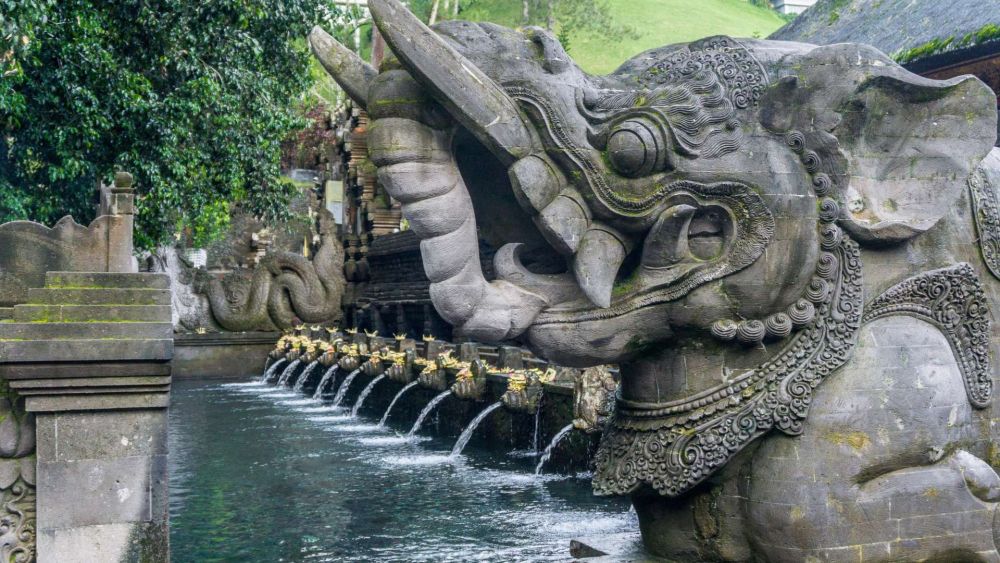

Tirta Empul Temple, located in the town of Tampaksiring, Bali, Indonesia, is one of the most holy and historically significant temples in the region. Constructed in circa 926 AD during the reign of the Warmadewa dynasty, the temple has been a centerpiece of Balinese spirituality and ritual for more than a thousand years. Known for its holy spring waters, Tirta Empul means "Holy Spring" in Balinese.
The temple complex was built around a large spring which has been supplying fresh water for an array of religious ceremonies and daily use since its creation. According to local lore, the waters have healing properties and are said to purify the spirit. It has been a spot of pilgrimage not only for locals but also for travelers from around the world seeking purification and a glimpse into Balinese Hinduism.
The tourism history of Tirta Empul Temple dates back to the 1900s when Bali first came onto the world’s travel radar. With the establishment of air travel and increased exposure through literature and art, Bali’s mystical charm began attracting international visitors. Tirta Empul, being an essential spiritual landmark, became a not-to-be-missed destination for those visiting the island.
In the post-independence period of Indonesia, and especially during the 1980s and 1990s, tourism in Bali saw exponential growth. The increase in the number of visitors to Tirta Empul mirrored this trend, helping to establish it as one of Bali's most visited spiritual sites. The temple gained further recognition when it was designated as a cultural heritage site.
Today, Tirta Empul continues to be an important location for spiritual pilgrimages, while also being a popular stop for tourists. It is part of the 'subak' system recognized by UNESCO's World Heritage List, which honors Balinese traditional irrigation methods. Tourists are drawn by the chance to participate in the temple’s purification ritual, where they immerse themselves in the holy spring's water baths.
The latest trends in tourism at Tirta Empul focus on a more sustainable and respectful approach to travel. With the rise in eco-tourism, visitors to the temple are increasingly seeking connections with local culture while minimizing their environmental impact. The spiritual and holistic wellness aspect of the temple's waters is also gaining popularity among global visitors looking for rejuvenating experiences.
Taking advantage of digital media, the temple is now featured on various travel platforms, allowing for virtual tours and online experiences. This has been particularly useful during periods when restrictions on travel are in place, such as during the COVID-19 pandemic.
To cater to modern visitors, there are also greater amenities and information available in multiple languages, ensuring that guests from around the world can fully appreciate the history and spiritual significance of Tirta Empul Temple.